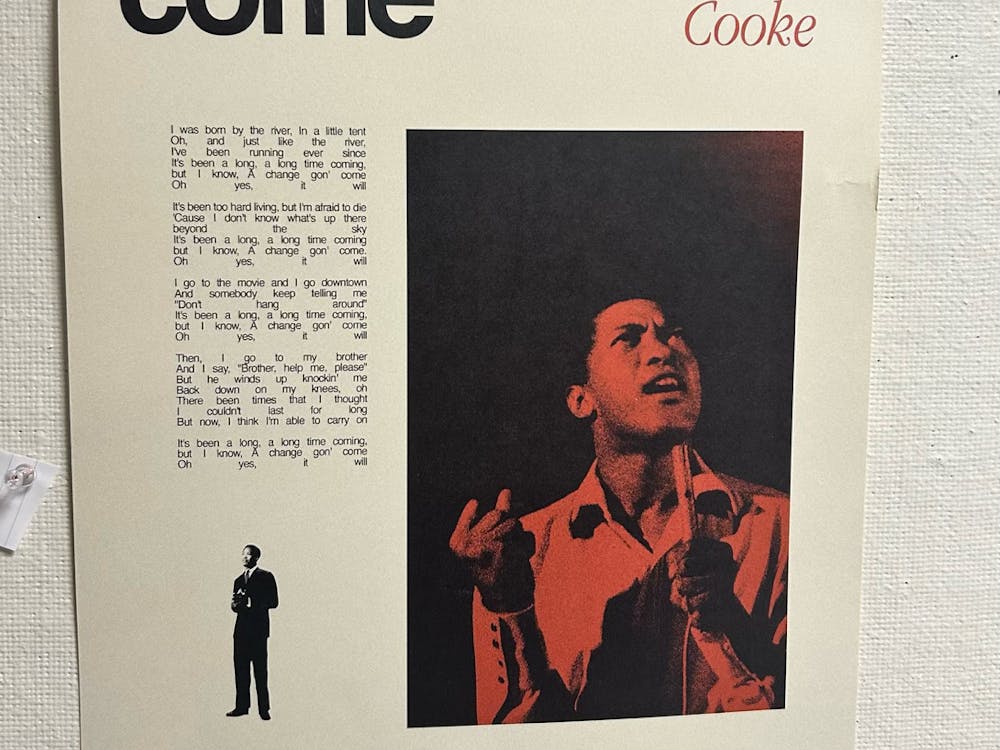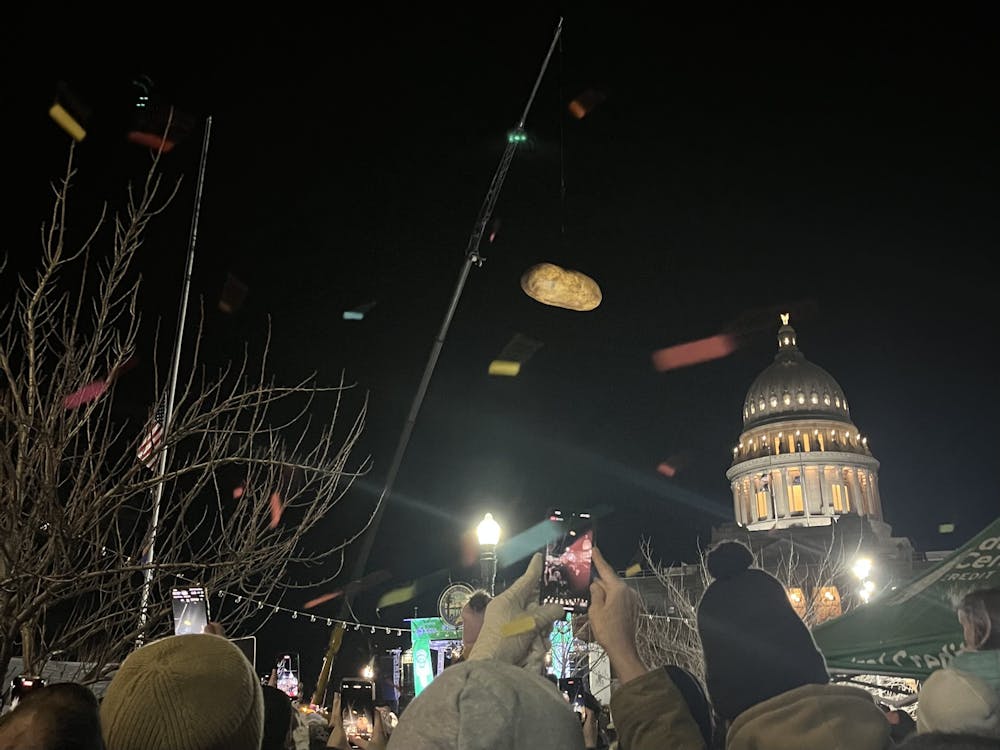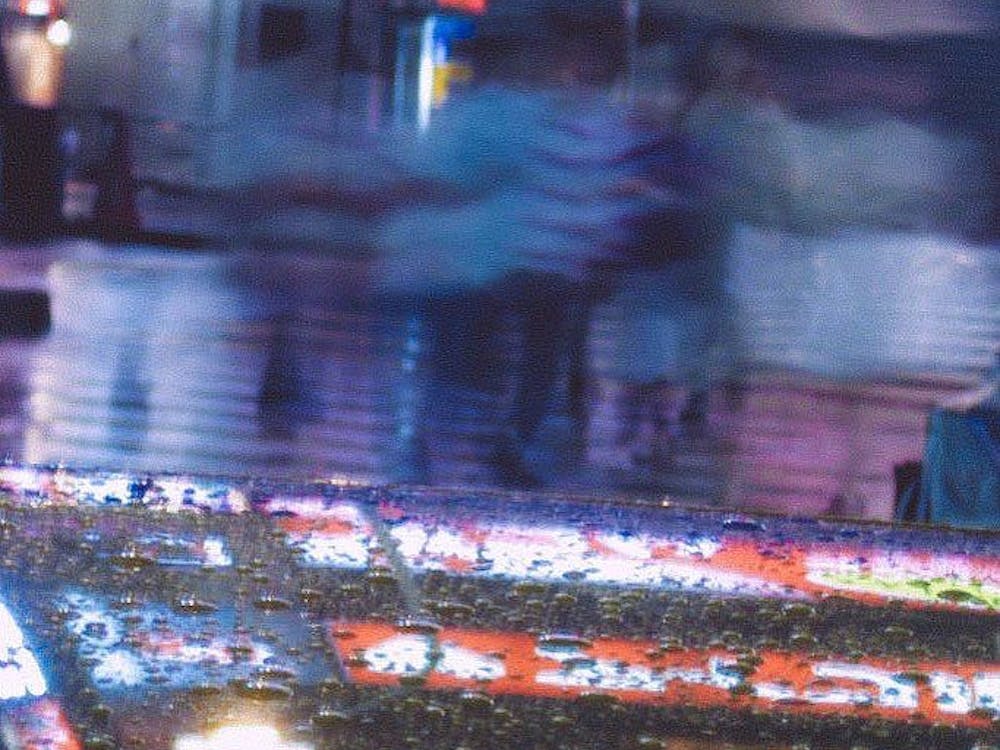Content warning: The following article includes topics some readers may find triggering, including sexual assault.
Back home in Taiwan, my family likes to joke that I am an ai ku gui: a crying ghost.
Strange as it is, this is the thought I turn to as I retrieve memories from my college years. My first impulse is to compartmentalize them into “happy” recollections and “not-so-happy” ones. But, of course, my college experience has been far more nuanced and complicated than that.
Looking back, I realize I hold onto many regrets, frustrations and disappointments. I have shed many tears, some happy but many sad and angry, and I write this not out of a sense of nostalgia for “the best four years of my life” but through the reconciled realization that these four years were far from perfect.
Certainly, there are memories that make me happy, make me laugh, make me wish I could just press pause and relive them again and again and again. Some examples: a train ride to Boston with friends, a women-versus-men paintball battle with bodies turning into masses of bruises, a twelve-hour-long conversation with my “bestie” suitemate.
Then there are chunks of memory that are blurry and dredged from the twilight zone. Sophomore year: remote learning, a blur, a world shrunk down to my bedroom. The Zoom fatigue and constant burnout. The major milestones that passed by without the people to celebrate them. The hum of loneliness, a sensation that still feels like a low-grade migraine.
I grew so tired of carrying this solitude that, when I moved back on campus in junior year, I placed an outsized sense of faith in my freshman friend-group of eight men and three women. We congregated every weekend to watch movies, play poker and eat dinner. Gosh, it felt wonderful to be surrounded by friends again.
Then, a few months into junior spring, this group I remembered so fondly fell apart within the span of a week.
Junior spring: many sad tears, many angry tears. Things that make me rageful, make me crestfallen, make me want to wipe them out completely from my memories. But some memories cannot be forgotten as much as I want to forget them. Forgetting, after all, is a luxury.
I would spend the majority of that semester despondent and rageful. I would learn that the world could be a hard and unforgiving place. I would discover a new category of sadness all its own.
A male friend I’d grown close to — a man I’d trusted immensely — would violate my body. How the assault distorted my sense of self-worth and nearly broke me. How, in the aftermath, I found a thousand ways to hate my body rather than the man who hurt me.
I would cry in my bedroom. Inside the gym bathroom. On a solo walk to Hampden. I would have a hard time navigating this new set of reality, one that I never asked for in the first place.
And, when I finally found words to articulate this “thing” that happened to me, when I opened up about my assault, I watched my former friends exonerate him from accountability.
I watched a former female friend defend my perpetrator — “Why out him if you don’t know the full story?” — and proceed to post not once, not twice, but three times on Instagram, celebrating her friendship with him in response to me.
“Thanks for being the most amazing friend.”
“Thank you for all the haha funnies, the memories and the late-night shenanigans.”
Words can hurt. Photos can hurt. To her, I was an unreliable narrator who had exaggerated. Overreacted. Told half-truths and outright lies. My perpetrator was the wronged man with so much charisma left to spare.
How infuriating and confusing it was to know deep down that I’d been assaulted, only to be denied my pain by a man so capable of deftly convincing the world that it had all been a misunderstanding.
How cruel it was for a female friend who knew exactly what had happened do everything in her power to ruthlessly diminish my pain, my trauma. Woman to woman, it was more than salt rubbed onto an open wound. It was more than a betrayal. It was a violent offense.
As much as I want to write about something happy and light-hearted, my mind can only gravitate towards this swollen, festering wound of junior spring. I don’t want my college life to be solely defined by these “not-so-happy” memories, but they still sneak up on me like a ghost — unbidden, haunting.
I struggle to call myself a victim-survivor because how much of this experience have I actually “survived” if I am constantly thinking about him, about her?
My perpetrator and the female friend have occupied a disproportionate amount of space in my vault of college memories, and I want to vacate portions of my history and leave no trace of myself in this window of time.
I wish they could just be irrelevant side characters in my personal history, never to reappear in the story of my life. I wish I could say that neither of them is worth my breath and time, but here I am writing this.
And I feel so much anger in my bones, the pressure building right beneath my skin.
The man — shameless and self-justifying — who made me feel so small and repulsive in the body I inhabit and own, this body that has belonged to me for 21 years and counting.
The woman — all bark, no bite — who took personal offense to my violation, who had absolutely no right to control my experience.
I am tired of the mute, oppressive feeling of silence that kept me from verbalizing this hurt since junior spring. I can’t undo what happened, and I am sorry to tell you, junior-year Charlene, that you would grit your teeth writing many badly-composed pages, and that you still would not be able to write yourself out of your past.
But writing is how I make sense of my college years. Writing is my protection. Writing is my empowerment. Writing is my liberation.
I write my last article for The News-Letter to give space for introspection, and I will continue to write because some things are meant to be heard more than once.
I return to the past not to compartmentalize and put it away, but to understand how I have grown and matured from it, how I have undergone a change of heart, how I can contextualize it with new meaning.
I am reaching out and taking the hand of my past self who endured — and is still enduring — the weight of trauma.
I am reaching out to my mother who called me daily in junior spring to check in on me. To my father who flew all the way to America from Taiwan. To my high school friend who is always so patient and endearing. To those who, by supporting me, have also lost friends in the process. To old and new friends who have made my final year after junior spring happier and brighter. To jhsurvivors.
Perhaps, if there is one piece of advice I would give to my past self — to the crying ghost, to the angry woman, to the survivor — it is this:
Don’t let the bastards bring you down.
Graduating me, I welcome you with open arms.
The Counseling Center may be contacted by calling (410) 516-8278 from 8:30 a.m. to 5 p.m. Monday through Friday. A counselor is also available 24/7 at that same number in emergency situations.
Student Outreach and Support is available for appointments and can be contacted at (410) 516-7857 or at studentoutreach@jhu.edu.
Religious & Spiritual Life can be reached from 8:30 a.m. to 5 p.m. Monday through Friday at (410) 516-1880 or at chaplain@jhu.edu.
A Place to Talk is available for in-person support Sunday through Thursday. Members are available from 7 p.m. to 1 a.m. in Brody Learning Commons 4010 and from 7 p.m. to 11 p.m. in AMR I.
TimelyMD’s TalkNow service is available 24/7 and can be accessed by visiting timelycare.com/jhu.
Students may contact their resident advisors or residence directors or visit the Residential Life Office. Residential Life can be contacted by phone at (410) 516-8283 or by email at residentiallife@jhu.edu.





